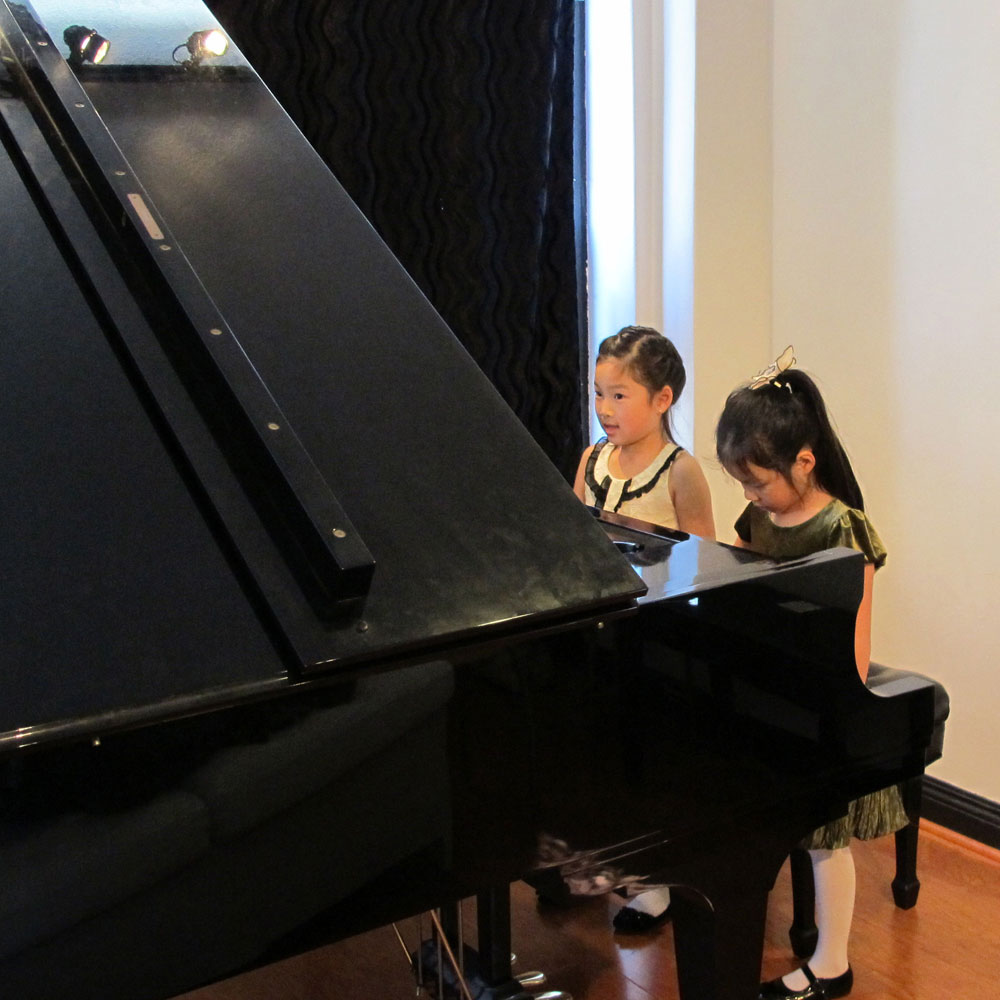
By Paul Kwo
Parent: “Why aren't you practicing?”
Kid: “Piano is boring.”
Parent: “But you used to love the piano.”
Kid: “But it's boring now.”
This is an ongoing problem with piano lessons. Practicing at home can often become tedious and boring. After all there is just no short cut in practice time. How in the world could anyone learn an etude without spending hours at a time on the piano? It's just not possible.
The few kids far and in between who loves piano music will have no problem practicing. They love the music they are practicing. They want to play those pieces. So they automatically have a goal to work towards. They want to accomplish the ability to play certain pieces of music.
But most kids don't necessarily have a profound love of piano music. They may like piano music, but certainly not enough to move them into playing the piano for hours on end to learn a technically challenging piece of music. They may just enjoy tinkering at the piano for five minutes at a time, but anything beyond that is just tiresome.
It's a real challenge for young students to understand the role of the piano in music. Some piano teachers like to use pieces they know (new pop music) to encourage them to practice more and make piano more relevant.
Another alternative I found very helpful in getting students interested in giving the time and energy to learn piano and/or guitar is actually voice lessons. Many of my voice students after a year of study decides they want to take singing more seriously. In order to do so, they understand the need to learn an instrument if they want to write their own songs and perform on their own in the future. And the piano or guitar are the two primary instrument for any singer to learn so they accompany themselves while they sing and crank out their own original material.
But in the end, don't stress over a child practicing habits. Even if the kid practices for only 5 minutes a week, that's better than no practice. Even if going to the piano lesson is the only practice the child gets, that's still growth. Keep the consistency of the lesson. Help the child learn to enjoy music. Whether you are in Alhambra, or in Pasadena, or in another part of Los Angeles, or even in another part of the world, the core principle is the same. Take the stress out of piano lessons and let the child have fun. When they associate music learning to fun, that makes life so much better and they will still learn enough piano over the years. When they become adults and are able to play most music that they want to, it would have all been worth it.